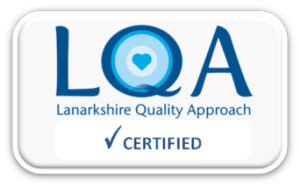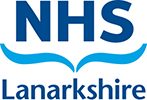COVID-19 - Nutrition Advice for Your Recovery
Information for patients
NHS Lanarkshire Nutrition and Dietetic Department
PIL.DIETIC.20_08971.M
This page may not be appropriate for patients with diabetes or kidney disease – please refer these patients to dietetics. If you have previously been given specific dietary advice to help you recover from your illness please follow that advice.
COVID-19 (coronavirus disease-2019) is an infectious disease that can lead to malnutrition (undernutrition) due to changes in appetite and your ability to eat, taste and smell. This can impact your recovery from the illness.
- This page will cover tips for:
- Eating when you are short of breath
- Taste changes
- Managing a dry mouth
- Fatigue
- How to increase energy and protein in your food
If you are following this advice and continue to have difficulty with eating and drinking, or if you continue to lose weight, contact your local GP for referral to a Dietitian
Tips for eating when you are short of breath
Eating can be more difficult when you are short of breath:
- Try to have a small meal/snack five or six times a day rather than three large meals
- Choose softer, moist foods that are easier to chew and swallow – add sauce, gravy, cream, or milk to soften
- Sit upright or at a table to eat your meals if possible as this helps to keep your chest “open”
- Take your time when eating
Tips for Managing Taste Changes
It is common to find that your favourite foods do not taste the same after COVID-19. It may be some weeks for your sense of taste to return to normal. Changes to your taste and smell are common symptoms of this illness.
- Use seasoning to add flavour to savoury foods, try mustard, herbs, spices, pepper
- Add flavourings like nutmeg, ginger, cinnamon, or sugar to puddings
- Sharp tasting food like pineapple, lemon, grapefruit, or cranberry may stimulate your taste buds
- If food tastes metallic, try using plastic cutlery rather than metal cutlery
Tips for managing a dry mouth
The use of nebulisers, inhalers and oxygen therapy along with breathlessness can result in a dry mouth. If you are finding it difficult to swallow, you are coughing frequently during meals, or your voice becomes gargly, ask your GP to refer you to a Speech & Language Therapist for further advice.
- Ensure you are staying hydrated – have six to eight cups of nourishing fluids like milky drinks and juices each day
- Keep foods moist by adding sauces, gravy, mayonnaise, creams, and custards. Try and eat moist dishes such as stews
- Suck on sweets or chew gum to stimulate saliva production
- Keep your mouth fresh by rinsing or gargling with water throughout the day
Tips for coping with fatigue
It is common to feel more tired during and after COVID-19; this may impact on your motivation to prepare and eat meals:
- Try having small portions if you are feeling overwhelmed, you can always go back for more
- Use longer life store cupboard ideas like tinned and frozen food, long life dairy products and puddings. This will reduce the amount that you may need to shop
- Try supermarket ready meals or meal delivery companies such as ‘meals on wheels’ services. You can search for services local to you on the government website: https://www.gov.uk and go to the meals at home section.
What should I eat and drink?
This table shows you food and drink that you are allowed to have, as well as things that you should avoid eating or drinking.
Increasing energy and protein in your food
One way to gain weight and rebuild muscle is to eat foods that are high in energy and protein; fortifying your food can help to achieve this. Use every day foods to increase the nutrient content of what you eat. Protein is required for the growth, repair and maintenance of all tissues within the body, high protein foods include poultry, meat, fish, beans, pulses, legumes, nuts, dairy and eggs.
- Avoid “diet” or “low fat/calorie” food and drink
- Choose high energy and protein snacks, such as cheese and crackers, pate on toast, scones with cream and jam, mini pork pies, cheese/ham sandwich, croissant, sausage roll, cheese on toast, handful of peanuts, fruit cake
- Enrich food by adding cheese, honey, syrup, jam, milk, butter or cream to sauces, vegetables, potatoes, puddings, breakfast cereals
- Fortify one pint of full cream milk by adding two to four tablespoons of skimmed milk powder. This does not change the taste, smell or texture of the milk but provides additional calories and protein
- Powdered supplements made up with milk such as Complan and Meritene are available from most supermarkets and pharmacies and can be used as an additional source of nutrition between meals
- If using convenience food/ready meals don’t forget to add extra nourishment, e.g. cheese and cream
Final tips to keep well
It is important that you try and maintain some level of physical activity to help with your rehabilitation. Gentle exercises such as walking around the garden or home can be beneficial. Information and resources can be found on the NHS Inform Website.
Keep an eye on your weight to monitor your rehabilitation progress and ensure you are meeting your nutritional requirements. Weight loss can be an indicator that your body is not getting all the nutrition it needs. Weigh yourself once a week, or look out for signs such as clothing and jewellery becoming looser fitting. Use the BAPEN self-screening tool to assess your risk of malnutrition and tips on how to reduce this.
Further Information
You should be referred to see the diabetes dietitian for further information and individual advice.
Pub. date: June 2022
Review date: June 2024
Issue No: 03
Reference: PIL.DIETIC.20_08971.M
If you need this information in another language or format, please e-mail:





